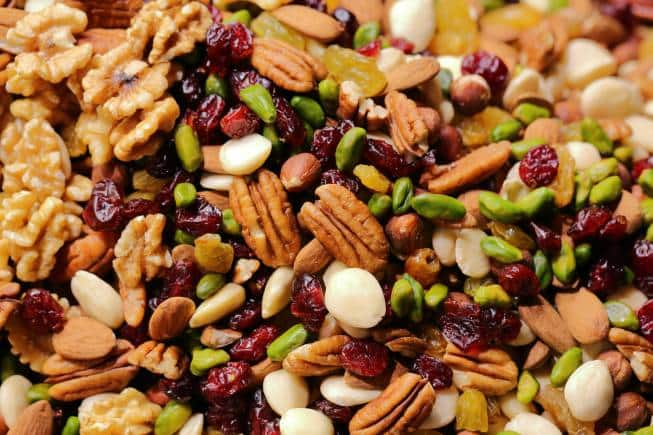
Cardiovascular diseases, which encompass heart disease and stroke, are the top cause of death worldwide, claiming nearly 1.8 lives each year, according to the World Health Organization. A global health crisis, heart disease is a particularly pressing issue in India, where its incidences are escalating rapidly.
Lifestyle changes and increased stress are significant contributors to this growing problem. Heart disease doesn't happen overnight; a range of factors influence it. Genetics play a role, but so do lifestyle choices like smoking, heavy alcohol use, and diets high in sugar, refined flour and fats. Lack of exercise, obesity, diabetes, high blood pressure, and high cholesterol also contribute to the disease's development. These conditions slowly alter the heart's function of pumping oxygen and nutrient-rich blood throughout our bodies.
Heart disease comes in many forms
The most common type, coronary artery disease (CAD), occurs when arteries become narrow and stiff, reducing blood flow to the heart and potentially causing chest pain or a heart attack. Arrhythmias, or irregular heartbeats, can disrupt how the heart pumps blood. Heart failure doesn't mean the heart stops working, but its pumping power is weaker, often due to CAD or high blood pressure. Congenital heart defects present from birth, cardiomyopathy, pericardial disease, and valvular heart disease are other forms of heart conditions.
However, the good news is that nutrition plays a critical role in preventing and managing heart disease. Since both the brain and heart functions are affected by our cardiovascular health, the adage ‘what’s good for your heart is good for your brain’ applies here. While only focusing on nutrition may not “cure” heart disease in the conventional sense, especially in advanced cases, a heart-healthy diet can significantly mitigate the risk factors and progression of the disease.
How nutrition impacts heart health
 Have a balanced diet of colourful fruits and vegetable. (Photo via Unsplash)
Have a balanced diet of colourful fruits and vegetable. (Photo via Unsplash)
1. Reducing risk factors: A balanced diet with various colourful fruits and vegetables, high in vitamins and minerals, can help reduce risk factors by controlling weight, reducing blood pressure, lowering cholesterol risk and managing diabetes.
2. Limiting unhealthy foods: Avoiding foods with added fats, including saturated and trans fats and cholesterol, can lower the risk of coronary artery disease (CAD). Limiting foods with added salt and sugar can prevent hypertension and help control weight and blood sugars, reducing the risk of heart disease.
3. Portion control: Eating more food than can be handled by the body can contribute to weight gain, a risk factor for heart disease. So, consuming preplanned portions and mindfully eating a balanced diet is crucial.
 Hydrate frequently, drink 3 litres of water daily. (Photo: Clint McKroy via Unsplash)
Hydrate frequently, drink 3 litres of water daily. (Photo: Clint McKroy via Unsplash)
4. Hydration: Staying hydrated is essential for overall health, as dehydration can make the blood thicker, cause poor blood flow and stress the heart muscle, leading to heart diseases. Thus, aim to consume around 3 litres of water daily.
Heart-healthy specific foods
1. Olive oil: Extra virgin olive oil is a cornerstone of the Mediterranean diet, known for its heart health benefits. It's rich in monounsaturated fats known as oleic acid, which can help reduce harmful low-density lipoprotein (LDL) levels and lower the risk of heart disease. Olive oil also contains antioxidants known as polyphenols, which may help protect the blood vessels.
 Olive oil. (Photo: Roberta Sorge via Unsplash)
Olive oil. (Photo: Roberta Sorge via Unsplash)
2. Fatty fish: Fish like rawas, pomfret, surmai, and tuna are rich in omega-3 fatty acids known for their heart-health benefits. Omega-3 fatty acids can help reduce triglycerides, lower blood pressure slightly, reduce blood clotting, decrease stroke and heart failure risk, and reduce irregular heartbeats.
 Salmon. (Photo via Unsplash)
Salmon. (Photo via Unsplash)
3. Nuts: Almonds, walnuts, pistachios, and others contain essential nutrients for heart health, including fibre and vitamin E, which can help lower harmful LDL particles in the circulation system. They are also a good source of healthy fats.
 Nuts. (Photo: Maksim Shutov via Unsplash)
Nuts. (Photo: Maksim Shutov via Unsplash)
4. Berries: Strawberries, blueberries, blackberries, and raspberries are rich in essential nutrients and antioxidants like anthocyanins, which can protect against oxidative stress and inflammation contributing to heart disease. They also help to lower blood pressure and LDL particle levels.
 Berries. (Photo: Markus Spiske via Unsplash)
Berries. (Photo: Markus Spiske via Unsplash)
5. Leafy green vegetables: Spinach, cabbage, and lettuce are well-known for their wealth of vitamins, minerals, and antioxidants. They are high in vitamin K, which helps protect your arteries and promote proper blood clotting. They're also high in dietary nitrates, which have been shown to reduce blood pressure, decrease arterial stiffness, and improve the function of cells lining the blood vessels.
 Spinach. (Photo: Louis Hansel via Unsplash)
Spinach. (Photo: Louis Hansel via Unsplash)
It's crucial to note that while diet is an essential aspect of heart health, it is more effective when combined with other lifestyle changes such as regular exercise, sleep, quitting smoking, limiting or moderating alcohol intake and managing stress. Early detection and management of the earlier-mentioned risk factors are crucial for preventing or treating heart disease. For individuals with existing heart conditions, specific dietary recommendations should be tailored to their needs, often in consultation with a qualified nutritionist or certified healthcare expert.
Discover the latest business news, Sensex, and Nifty updates. Obtain Personal Finance insights, tax queries, and expert opinions on Moneycontrol or download the Moneycontrol App to stay updated!